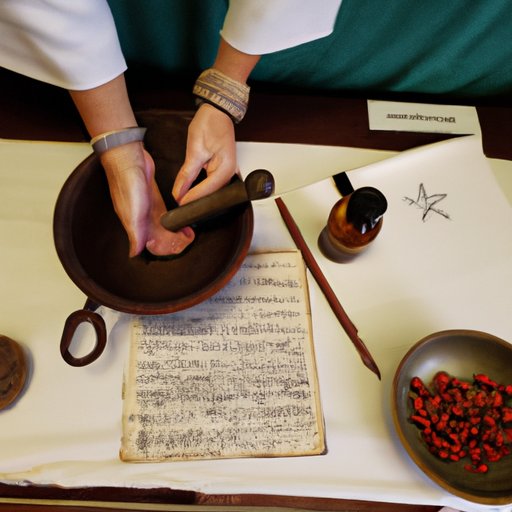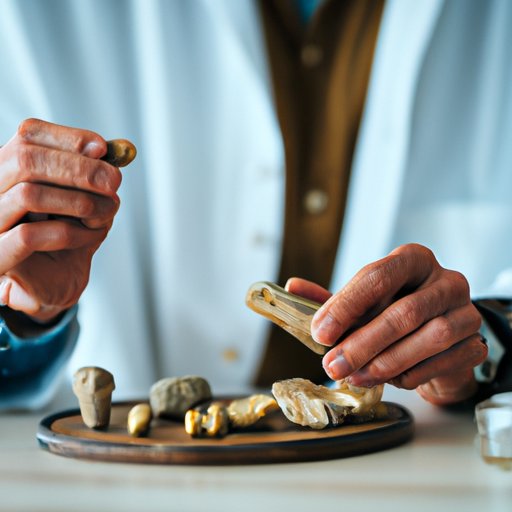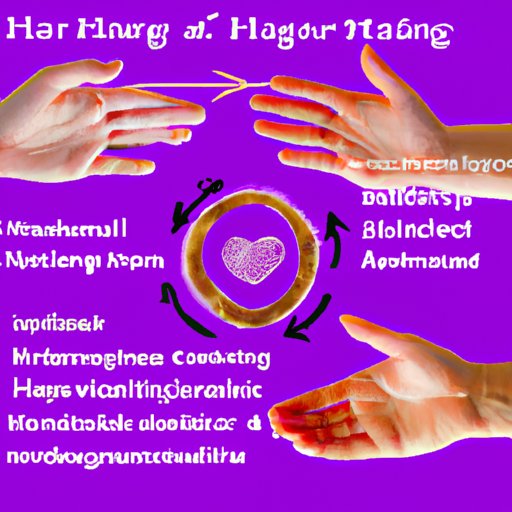Introduction
Medicine is a term that encompasses the diagnosis, treatment, and prevention of disease, illness, injury, and other physical and mental impairments in humans. It is an ever-evolving practice that has been used since prehistoric times to improve the health and wellbeing of individuals. But when was medicine invented? This article takes a look at the history of medicine, from its early origins in prehistory to the development of modern medical practices.
A Historical Overview of the Invention of Medicine
Throughout the course of human history, medicine has changed drastically. What began as primitive beliefs and practices has transformed into a scientific field of study that seeks to understand the causes and effects of disease. Here, we will examine the evolution of medicine from its earliest beginnings in prehistory to its development as a modern medical practice.
Early Prehistoric Medicine
Prehistoric medicine refers to the beliefs and practices of ancient peoples before the development of written records. During this time, medical treatments were based on superstition and folklore. Ancient peoples believed that illness was caused by supernatural forces, such as gods, spirits, and witches. As a result, they relied on magical charms, prayers, sacrifices, and potions to cure sickness and promote health.
Over time, these beliefs and practices evolved into more scientific methods of healing. Ancient civilizations developed their own systems of medicine, utilizing natural substances like herbs and minerals to treat ailments. These remedies were often based on trial and error, as there was no scientific understanding of the human body or how it worked.
Development of Modern Medicine
The development of modern medicine began with the advancement of technology. In the late 19th century, scientists began to gain a better understanding of the human body and its functions. This led to the discovery of germs, viruses, and bacteria, which allowed doctors to diagnose and treat diseases in ways that had never been possible before.
In addition, pioneers in the field made major contributions to the advancement of modern medicine. For example, Louis Pasteur conducted groundbreaking research on germ theory and vaccination, while William Harvey developed the first accurate description of the circulatory system. These discoveries revolutionized the medical profession, paving the way for further advancements in medical research.
Today, modern medicine is based on evidence-based practices and the use of advanced technology to diagnose and treat illnesses. Medical research has resulted in the development of new drugs, procedures, and treatments that have improved the health and wellbeing of millions of people around the world.

Exploring Ancient Medical Practices from Around the World
Medical practices from various cultures have contributed to the development of modern medicine. Here, we will explore some of the most influential ancient medical practices from around the world.
Ancient Egypt
The Egyptians developed one of the earliest medical systems in the world. They created medical texts, such as the Edwin Smith Papyrus, which contained detailed descriptions of medical conditions and treatments. The Egyptians also utilized traditional herbal remedies, such as castor oil and aloe vera, to treat various ailments.
Ancient Greece
The Greeks are credited with the beginnings of scientific medicine. Hippocrates, the father of western medicine, wrote extensively about the importance of observation and diagnosis in treating illness. He also emphasized the use of natural substances, such as plants, animals, and minerals, to treat disease.
Chinese Medicine
Chinese medicine dates back thousands of years and is still widely practiced today. It is based on the belief that the human body is composed of four elements – fire, earth, water, and air – and that health is achieved when these elements are balanced. Traditional Chinese medicine utilizes techniques such as acupuncture and moxibustion to restore balance and promote healing.

Examining the Impact of Prehistoric Medicine on Modern Health Care
The development of medicine over the centuries has had a profound impact on modern healthcare. Many of the treatments and therapies used today are based on traditional methods of healing. Here, we will examine how prehistoric medicine has shaped modern health care.
One of the most significant impacts of prehistoric medicine is the emphasis on natural remedies. Traditional treatments often focused on the use of herbs, minerals, and other natural substances to treat illness. Today, many of these remedies are still used, either as stand-alone treatments or in combination with modern medications.
In addition, prehistoric medicine has contributed to the expansion of medical knowledge. As ancient civilizations developed their own systems of medicine, they passed down their knowledge through generations. This helped to shape our current understanding of the human body and how it works.
Finally, traditional medical practices often take a holistic approach to healing. Rather than focusing solely on the physical symptoms of an illness, they emphasize the importance of looking at the patient as a whole. This includes considering the person’s mental, emotional, and spiritual wellbeing as well as their physical health.
How the Development of Medicine Changed Civilization
The development of medicine has had a profound effect on civilization. Over the centuries, improvements in medical treatments and technologies have led to increased longevity and improved living conditions for many people around the world.
The average life expectancy has increased dramatically since the advent of medicine. In the past, people died young due to preventable diseases, but today, thanks to advances in medical science, people are living longer and healthier lives.
In addition, the development of medicine has led to improved living conditions. Medical advances have resulted in the eradication of certain diseases and the development of treatments for others. This has drastically reduced the number of deaths due to illness and injury, leading to a higher quality of life for many people.
Finally, the development of medicine has resulted in the emergence of new diseases and treatments. As medical science continues to advance, new diseases are being discovered, and treatments are being developed to combat them. This has enabled us to better understand and manage illnesses that were once thought to be incurable.

Comparing Traditional and Contemporary Approaches to Healing
Although traditional and modern medicine have both been instrumental in improving the health and wellbeing of individuals, they differ in many ways. Here, we will compare the advantages and benefits of each approach to healing.
Modern medicine has several advantages. It is highly accessible, with treatments and medications readily available to those who need them. Additionally, advancements in technology have enabled doctors to diagnose and treat illnesses more quickly and accurately than ever before.
On the other hand, traditional medicine offers many benefits as well. It focuses on prevention rather than cure, emphasizing the importance of lifestyle changes to maintain health. Additionally, traditional medical practices often rely on the use of natural remedies, such as herbs and minerals, to treat ailments.
Conclusion
In conclusion, medicine has come a long way since its early beginnings in prehistory. From primitive beliefs and practices to modern medical research, the development of medicine has had a profound impact on civilization. It has improved the health and wellbeing of millions of people around the world, and its influence can be seen in both traditional and contemporary approaches to healing.
The history of medicine is an ongoing process of discovery and innovation. As medical science continues to advance, we can expect to see new treatments and technologies that will revolutionize the way we think about health and wellbeing.
(Note: Is this article not meeting your expectations? Do you have knowledge or insights to share? Unlock new opportunities and expand your reach by joining our authors team. Click Registration to join us and share your expertise with our readers.)
